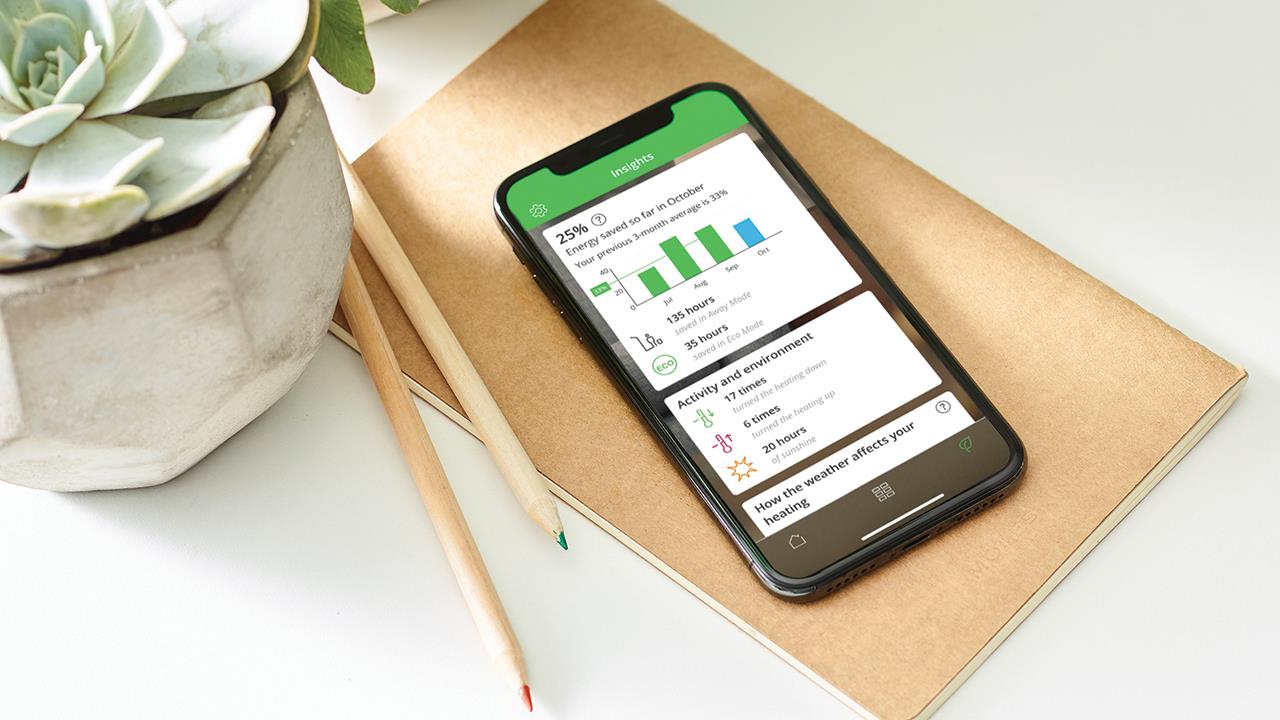

With the UK moving towards low carbon heating over the coming decade, the heating industry is experiencing significant changes.
With the push from the government’s Heat and Buildings Strategy, gas boilers will eventually be phased out, and homeowners are going to have to move towards renewable heat sources, such as heat pumps, electric IR radiators, and underfloor heating.
As electrical heat sources grow in popularity over the next decade or so, it is going to become increasingly important that our homes and the infrastructure of the grid are well set up to respond efficiently to the demand.
As this change starts to take place, the industry is now shifting away from the concept of ‘smart heating’ to that of ‘home energy management’, which, according to the Delta-EE Connected Home Service Country Report UK: 2020, is expected to grow by 31% every year over the next five years.
Installers can help homeowners already looking to switch to electric heating to futureproof their homes by selecting the right heating control system. Instead of looking solely for a smart heating solution, installers should look for a smart home solution with other capabilities than just heating, such as lighting, EV charging, etc.
By opting for a smart home system now, installers can prepare their customers for the introduction of home energy management systems (HEMS); one central management system that can decide when each electrical device within the home operates, based on the homeowners’ daily habits.
With dedicated systems, which include both hardware and software, HEMS will be able to monitor, provide feedback, and even control the usage of energy by devices in a household.
It enables homeowners to save on their energy bills and make their households more eco-friendly.
With advances in smart home technology and machine-to-machine communication (the Internet of Things), HEMS will potentially play a significant role in not only changing how homeowners consume energy (which has never been more important with today’s ever-increasing energy prices) but also in understanding the energy demand of household applications. This would give suppliers the ability to better manage the demand placed on the grid, while catering for homeowners’ needs.
Better connected
With this move to HEMS in mind, connected technology is going to become more prevalent, with homeowners looking to consolidate the control of all connected devices within the home to as few interfaces as possible. This presents a huge opportunity for installers to up-sell smart heating controls, particularly for heat pump and other hybrid systems that incorporate electric heating.
Additionally, it means that when it comes to insights and data, homeowners are able to have a much more rounded view of their heating system.
Rather than needing to monitor the performance of individual systems, homeowners will be able see how all devices are performing individually, as well as monitoring how they are working as a whole to improve the efficiency of their home.
Wiser, for example, offers the capability to manage multiple heat sources in mixed heating systems via a single app, rather than having different controls for each.
Moving forward
While this type of fully automated home might be some way off, the UK government and utility providers are already adopting HEMS, and it is clear these innovative systems have a big role to play in the future of the energy infrastructure and in our lives.
With this in mind, it is important that heating engineers are starting to educate themselves on the home energy management solutions available, to be in a position to up-skill and adopt them as part of their offering, as traditional gas boiler installations are phased out from 2025.
If you'd like to keep up-to-date with the latest developments in the heating and plumbing industry, why not subscribe to our weekly newsletters? Just click the button below and you can ensure all the latest industry news and new product information lands in your inbox every week.